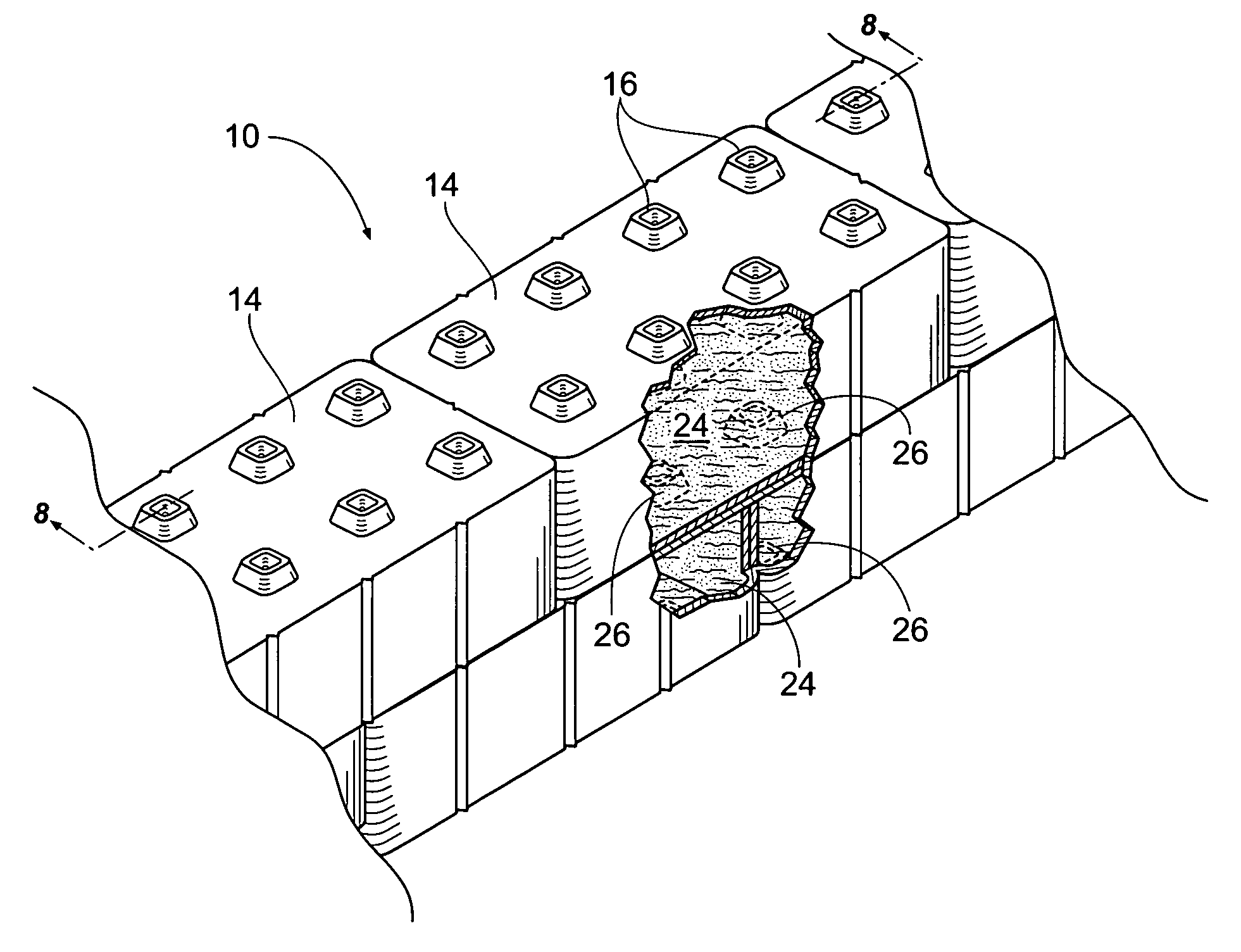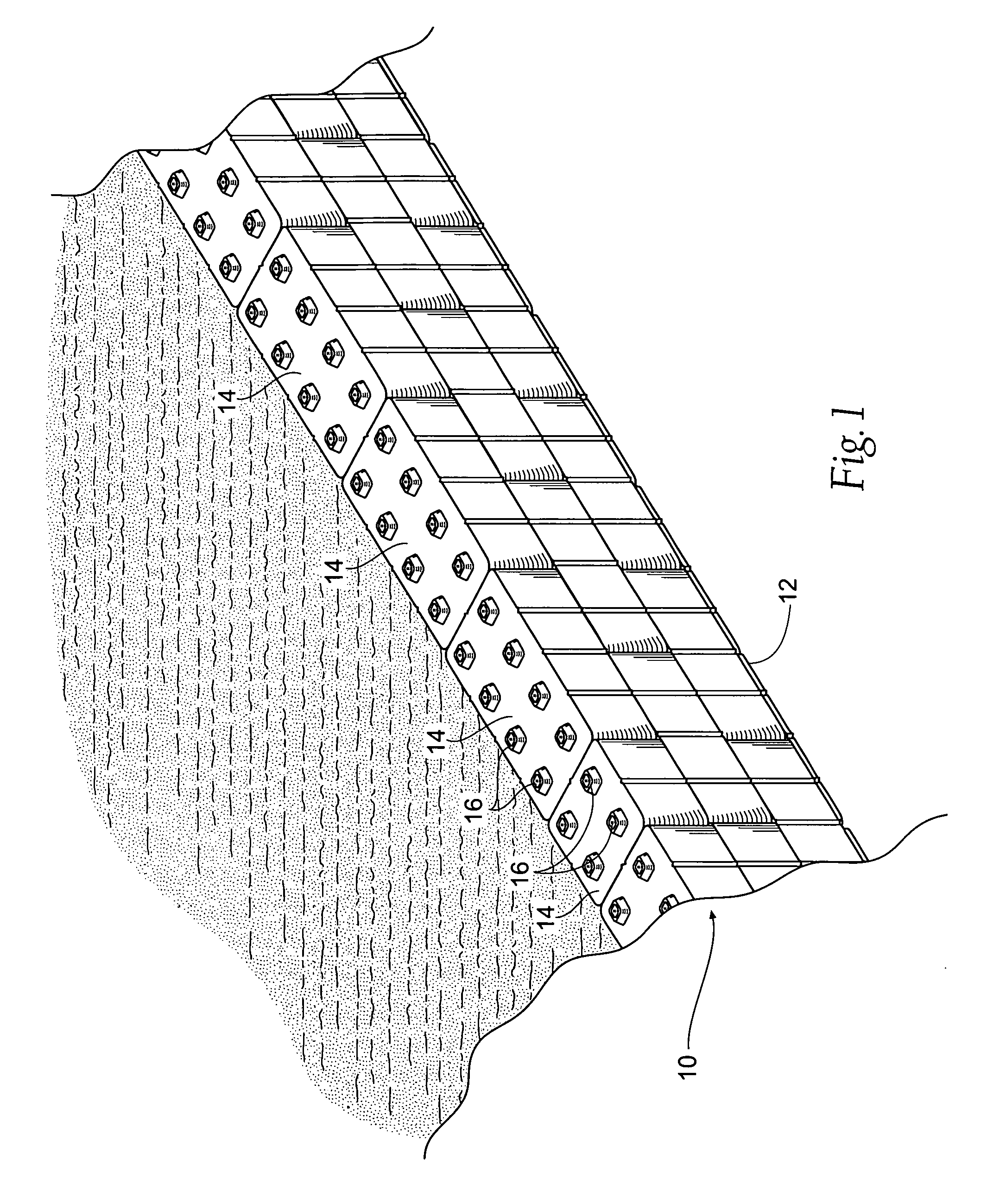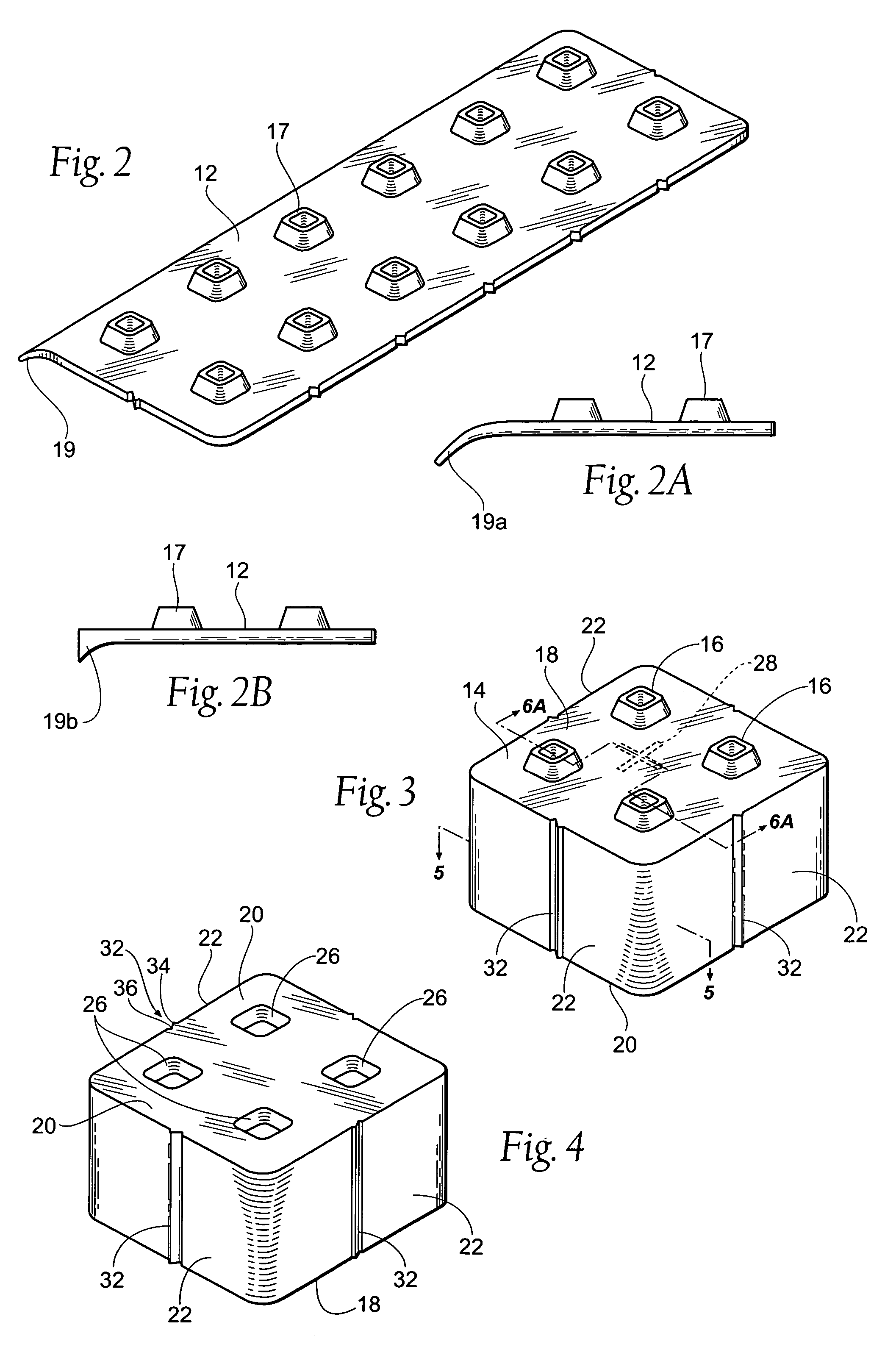Riparian flood wall structure
a flood wall and riparian technology, applied in the direction of buttress dams, artificial islands, excavations, etc., can solve the problems of limiting the utility of emergency situations, difficult process, and inability to easily adapt the size of the formed dam to accommodate different sized areas
- Summary
- Abstract
- Description
- Claims
- Application Information
AI Technical Summary
Benefits of technology
Problems solved by technology
Method used
Image
Examples
Embodiment Construction
[0033] Although the disclosure hereof is detailed and exact to enable those skilled in the art to practice the invention, the physical embodiments herein disclosed merely exemplify the invention which may be embodied in other specific structures. While the preferred embodiment has been described, the details may be changed without departing from the invention, which is defined by the claims.
[0034]FIG. 1 shows a perspective view of a modular wall assembly 10. The assembly generally comprises a base member 12 and a plurality of stackable blocks 14. Each of the blocks 14 has a plurality of protuberances 16. The protuberances 16 are arranged so that the blocks 14 can be easily mated with one another in an interlocking fashion to form a solid wall. As shown, the blocks 14 can be of differing sizes from one another. The base member 12 preferably is secured to the ground or other external force with stakes, rods, or other possible securing devices (not shown).
[0035] As shown in FIGS. 2, ...
PUM
 Login to View More
Login to View More Abstract
Description
Claims
Application Information
 Login to View More
Login to View More - R&D
- Intellectual Property
- Life Sciences
- Materials
- Tech Scout
- Unparalleled Data Quality
- Higher Quality Content
- 60% Fewer Hallucinations
Browse by: Latest US Patents, China's latest patents, Technical Efficacy Thesaurus, Application Domain, Technology Topic, Popular Technical Reports.
© 2025 PatSnap. All rights reserved.Legal|Privacy policy|Modern Slavery Act Transparency Statement|Sitemap|About US| Contact US: help@patsnap.com



